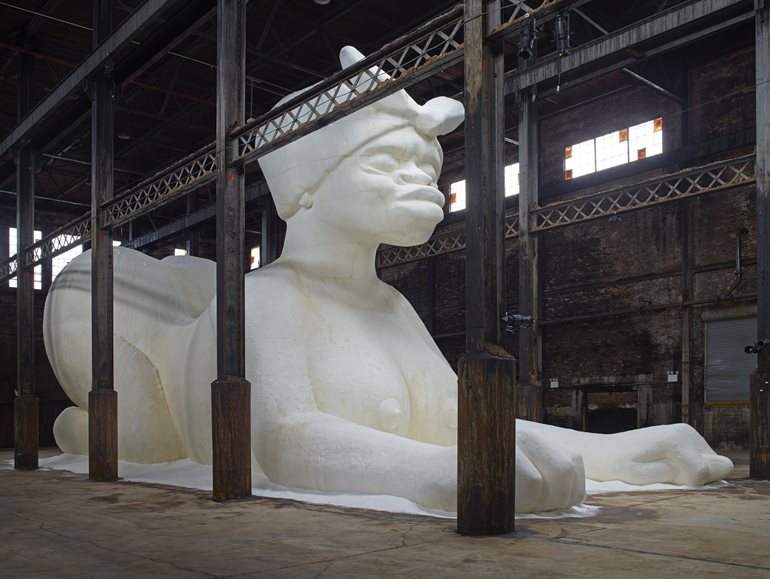
His students in The Functions of Sex: Race and Gender in America sometimes surprise Dr. Jason Morse, a lecturer in the University of Washington Bothell’s School of Interdisciplinary Arts & Sciences.
Designed to help first-year college students explore new concepts and interdisciplinary issues, the Discovery Core course is a cultural study of sex as a form of identity, socialization and power in framing gender and race.
Students are challenged to analyze essays, fiction, poetry, videos, art and graphic novels. They reflect on different ways of thinking in weekly posts and other assignments, including a creative work of their own.
Sound daunting? Not for students who are eager to engage and expand on the ideas.
More intense conversations
“I was surprised at how willing they were to tackle more intense issues than I was bringing up a lot of the time,” said Morse, who said this includes sensitive topics such as sexual assault. “They were really interested in researching some intense things.”
His students also readily related the ideas to what they see and read on current media. When Morse asked how they would update essays written more than 20 years ago, they responded with examples of how women are treated on Instagram and TikTok.
“They’re really smart about understanding what heteronormative power looks like now, for instance, versus what it did in the ‘90s,” Morse said. “We think about how heterosexuality is more valued in our society, and we think about the repercussions of that for people of color.”
From awkward to intellectual
Juno Bonnell, who took the course in winter 2020, said everyone felt a little awkward at first, before becoming comfortable as the class went on. Topics that might have prompted a nervous joke turned into serious, thoughtful discussions.
“Once I let go of the apprehensions and the societal notions that this isn’t something we discuss with other people, it began a more intellectually productive discussion,” said Bonnell, a second-year student who plans to major in Community Psychology.
To better engage students more deeply, Morse added an extra dimension to the course by including images of art as well as essays and literature. One example was a sphinx-like woman, sculpted in sugar at an abandoned factory in New York by Kara Walker (photo below).
For Bonnell, it “helped my brain grab on to” a concept.
“I was able to see a manifestation of the thing we were talking about. It wasn’t just words on paper anymore,” Bonnell said.
Through his approachable manner, Morse also made it easy to engage in the class — and even fun, Bonnell said.
Relatable readings
Morse structured the winter quarter course during the pandemic for extra flexibility, with synchronous and asynchronous elements. The 25 students had the opportunity to meet in the same teleconference on Thursdays. They would start talking about concepts and then go into smaller groups to apply ideas. Morse would pop in to talk about examples. Even if they were unable to meet together at the same time, students watched recorded lectures, read assignments and posted their reflections. Students then developed their posts into papers and exam answers.
Morse says he favors assigning short readings — but a lot of them. One, the essay “Sex in Public” by Lauren Berlant and Michael Warner, lists things that present heterosexuality as the norm such as his-and-hers towels and minivans, Morse said.
Readings included selections from “The History of Sexuality” by Michel Foucault, “Thinking Sex” by Gayle Rubin and “Black Masculinity and the Myth of the Black Rapist” by Angela Davis. Students also read a poem by Gwendolyn Brooks on the death of Emmett Till and studied the works of Tschabalala Self, an artist known for her depictions of Black women.
Other readings of note included R. Zamora Linmark’s poem “They Like You Because You Eat Dog,” about Filipino stereotypes; Jaime Cortez’s “Sexile,” a graphic novel about a transgender woman from Cuba; and the art exhibition “The Unbreakable Rope: An Exploration of Sexuality in Islam.”
“In all my classes I want to talk about issues that are related to student populations we have at UW Bothell — Asian American, Arab American, African American and Latinx experiences,” Morse said.
Cultural discovery
This is the fourth year that Morse has taught The Functions of Sex: Race and Gender in America, a course that he designed.
Morse also teaches the autumn quarter Discovery Core course The Cultural Work of Stereotypes and the spring quarter The Cultural Studies of Graphic Memoir, which uses illustrated books. The focus of his teaching is how to engage and analyze concepts and new ways of thinking about issues that frame students’ everyday lives.
As part of the Discovery Core program, all these courses help students move deeper into college life and learn skills such as the UW Bothell’s practice of approaching subjects from multiple academic disciplines.
Like many other Discovery Core courses, The Functions of Sex encourages students to reflect in depth about their lives, current events and how the ideas connect in different disciplines, Morse said.
“I think the best thing about Discovery Core is you’re learning ways of thinking.”

Kara Walker: A Subtlety, or the Marvelous Sugar Baby, an Homage to the unpaid and overworked Artisans who have refined our Sweet tastes from the cane fields to the Kitchens of the New World on the Occasion of the demolition of the Domino Sugar Refining Plant, 2014. Polystyrene foam, sugar. Approx. 35.5 x 26 x 75.5 feet (10.8 x 7.9 x 23 m). Installation view: Domino Sugar Refinery, A project of Creative Time, Brooklyn, NY, 2014



